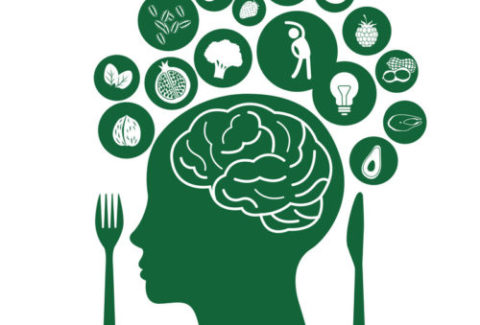Fasting for Experienced Clinicians: Understanding the Science and Potential Benefits
Fasting, the deliberate abstention from food or caloric beverages for a specific period[1], has gained significant attention in recent years for its potential health benefits. As experienced clinicians, you are likely familiar with various medical practices and treatments, but exploring the science and applications of fasting can expand your knowledge and offer new possibilities for patient care. In this article, we introduce fasting specifically tailored for experienced clinicians, exploring the different fasting methods, the underlying physiological mechanisms, and the potential benefits for various health conditions.
Types of Fasting:
Intermittent Fasting (IF):
Intermittent fasting involves cycling between periods of eating and fasting. Common IF approaches include:
- The 16/8 method (fasting for 16 hours and eating during an 8-hour window)
- The 5:2 diet (eating normally for five days and drastically reducing caloric intake on two non-consecutive days), and
- The Eat-Stop-Eat method (24-hour fasting once or twice a week).
Extended Fasting:
Extended fasting typically refers to fasting periods that last between 24 and 72 hours. This approach may involve consuming only water, herbal teas, coffee, or electrolyte solutions during the fasting period.
Time-Restricted Eating (TRE):
TRE is a form of intermittent fasting that restricts eating to specific hours of the day, often aligning with the body’s natural circadian rhythm. It encourages eating during daylight hours and fasting during the evening and night.
Physiological Mechanisms:
Fasting triggers a range of physiological changes in the body, many of which have potential health benefits:
Ketosis[2]:
During fasting, the body shifts from using glucose as its primary fuel source to using stored fat. This metabolic state, known as ketosis, produces ketone bodies that provide energy for the brain and other organs.
Autophagy:
Fasting stimulates autophagy, a cellular process that involves the removal of damaged cells and cellular components. Autophagy is believed to play a role in cellular repair and protection against certain diseases[3].
Insulin Sensitivity:
Fasting can improve insulin sensitivity, reducing the risk of insulin resistance and type 2 Diabetes[4].
Human Growth Hormone (HGH) Release[5]:
Fasting triggers the release of human growth hormone, which plays a role in metabolism, muscle growth, and overall health.
Potential Benefits and Clinical Applications:
Weight Management[6]:
Intermittent fasting and extended fasting can promote weight loss by reducing caloric intake and improving fat metabolism.
Metabolic Health:
Fasting may improve various markers of metabolic health, including blood sugar levels, cholesterol levels, and blood pressure[7].
Neuroprotection:
The ketones produced during fasting are believed to have neuroprotective properties, potentially benefiting brain health and reducing the risk of neurodegenerative diseases.[8]
Cardiovascular Health[9]:
Fasting has been associated with improvements in cardiovascular health, such as reducing inflammation, improving blood vessel function, and lowering blood pressure.
Autophagy[10] and Cellular Repair:
Stimulating autophagy through fasting may support cellular repair and contribute to healthy aging.
Chronic Disease Management[11]:
Fasting shows promise in managing certain chronic diseases, such as type 2 Diabetes, metabolic syndrome, and some neurological conditions.
In Sum:
As experienced clinicians, delving into the science and potential benefits[12] of fasting can offer new insights into patient care and treatment options. While fasting holds promise as a complementary approach to various health conditions, it is essential to consider individual patient needs, medical history, and lifestyle factors before recommending fasting practices. As research on fasting continues to evolve, embracing a holistic and evidence-based approach can empower you to effectively integrate fasting as a tool for improved patient outcomes and overall well-being.
What’s Next:
- Continue to be on the lookout for upcoming articles in this series, delving deeper into the world of nutrition and its impact on well-being.
- Continue to gather more information on the role of nutrition in overall health and wellness, staying updated with the latest research and recommendations.
- Continue to have more frequent conversations with your clients about nutrition, understanding potential barriers, and helping them overcome obstacles to optimal eating habits.
- Join us for our Nutrition for Optimal Aging Topic that takes place on Saturdays at 10am Eastern Time.
We acknowledge that habit change can be challenging, but motivation is a potent force that can be nurtured by guiding our patients through the stages of change. As clinicians, having awareness, understanding, insight, and knowledge about nutrition is key to inspiring positive transformations. This series aims to equip you with the essential tools, so you empower yourself and help your patients and clients do the same on their process to optimal well-being.
Until our next article, let us master how to continue our process of discovery and healing through the power of nutrition.
[1] Britannica, The Editors of Encyclopaedia. “fasting”. Encyclopedia Britannica, 17 Jul. 2023, https://www.britannica.com/topic/fasting. Accessed 30 August 2023.
[2] Arora, Niraj, et al. “Intermittent fasting with ketogenic diet: A combination approach for management of chronic diseases.” Clinical Nutrition ESPEN 54 (2023): 166-174.
[3] Antunes, Fernanda, et al. “Autophagy and intermittent fasting: the connection for cancer therapy?.” Clinics 73 (2018): e814s.
[4] Barnosky, Adrienne R., et al. “Intermittent fasting vs daily calorie restriction for type 2 diabetes prevention: a review of human findings.” Translational Research 164.4 (2014): 302-311.
[5] Patterson, Ruth E., and Dorothy D. Sears. “Metabolic effects of intermittent fasting.” Annual review of nutrition 37 (2017): 371-393.
[6] Templeman, Iain, et al. “The role of intermittent fasting and meal timing in weight management and metabolic health.” Proceedings of the Nutrition Society 79.1 (2020): 76-87.
[7] Hoddy, Kristin K., et al. “Intermittent fasting and metabolic health: from religious fast to time‐restricted feeding.” Obesity 28 (2020): S29-S37.
[8] Zhao, Yihang, et al. “The neuroprotective effects of intermittent fasting on brain aging and neurodegenerative diseases via regulating mitochondrial function.” Free Radical Biology and Medicine 182 (2022): 206-218.
[9] Mattson, Mark P., and Ruiqian Wan. “Beneficial effects of intermittent fasting and caloric restriction on the cardiovascular and cerebrovascular systems.” The Journal of nutritional biochemistry 16.3 (2005): 129-137.
[10] Antunes, Fernanda, et al. “Autophagy and intermittent fasting: the connection for cancer therapy?.” Clinics 73 (2018): e814s.
[11] Grajower, Martin M., and Benjamin D. Horne. “Clinical management of intermittent fasting in patients with diabetes mellitus.” Nutrients 11.4 (2019): 873.
[12] Chen, W. W., et al. “The benefits of intermittent fasting: A review of possible mechanisms on central neurological disorders.” Acta Alimentaria 52.1 (2023): 1-11.







